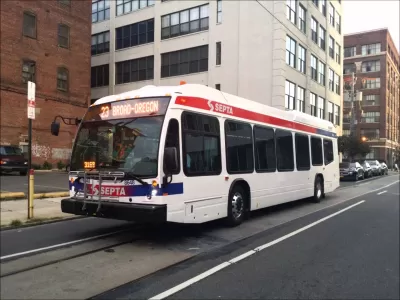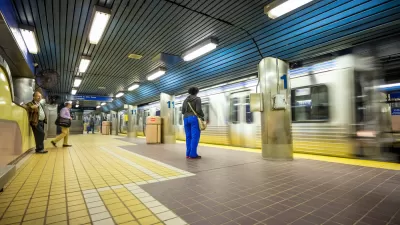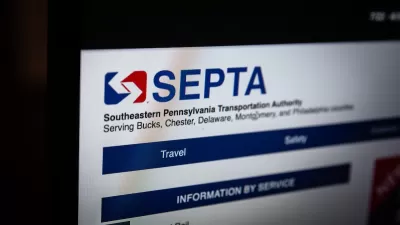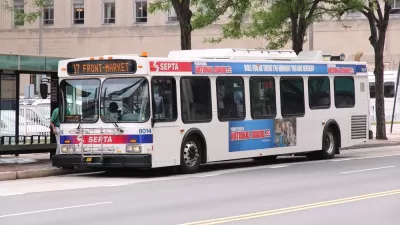Philadelphia's student passes cut off at 8 p.m. and don't include weekends, but expanding the free fare program could help SEPTA rebuild ridership and create lifelong transit users.

"Last week, SEPTA [Southeastern Pennsylvania Transportation Authority] and the School District of Philadelphia announced the rollout of new student SEPTA Key cards, which replace older magnetic strip cards that had to be renewed weekly," writes Daniel Pearson. "This is a long-overdue step, but it doesn’t go far enough. To better support Philly youth, the district and SEPTA should provide full TransPasses to all eligible students, allowing them to ride free on SEPTA at all times."
The current passes, which don't include weekends, cut off at 8pm, making it difficult for students who work or stay late for activities to access transit when they need it. Broadening the program, Pearson argues, would not only provide more options for students now but "also help foster a lifelong habit of transit use" and turn students "from users into aficionados."
As a city with underperforming transit ridership, argues Pearson, Philadelphia should embrace any new potential riders. "There’s no better potential source of riders than the students who already use SEPTA to get to school and are eager for the freedom a TransPass would provide."
FULL STORY: Let students ride SEPTA for free all day, every day

Maui's Vacation Rental Debate Turns Ugly
Verbal attacks, misinformation campaigns and fistfights plague a high-stakes debate to convert thousands of vacation rentals into long-term housing.

Planetizen Federal Action Tracker
A weekly monitor of how Trump’s orders and actions are impacting planners and planning in America.

In Urban Planning, AI Prompting Could be the New Design Thinking
Creativity has long been key to great urban design. What if we see AI as our new creative partner?

King County Supportive Housing Program Offers Hope for Unhoused Residents
The county is taking a ‘Housing First’ approach that prioritizes getting people into housing, then offering wraparound supportive services.

Researchers Use AI to Get Clearer Picture of US Housing
Analysts are using artificial intelligence to supercharge their research by allowing them to comb through data faster. Though these AI tools can be error prone, they save time and housing researchers are optimistic about the future.

Making Shared Micromobility More Inclusive
Cities and shared mobility system operators can do more to include people with disabilities in planning and operations, per a new report.
Urban Design for Planners 1: Software Tools
This six-course series explores essential urban design concepts using open source software and equips planners with the tools they need to participate fully in the urban design process.
Planning for Universal Design
Learn the tools for implementing Universal Design in planning regulations.
planning NEXT
Appalachian Highlands Housing Partners
Mpact (founded as Rail~Volution)
City of Camden Redevelopment Agency
City of Astoria
City of Portland
City of Laramie





























